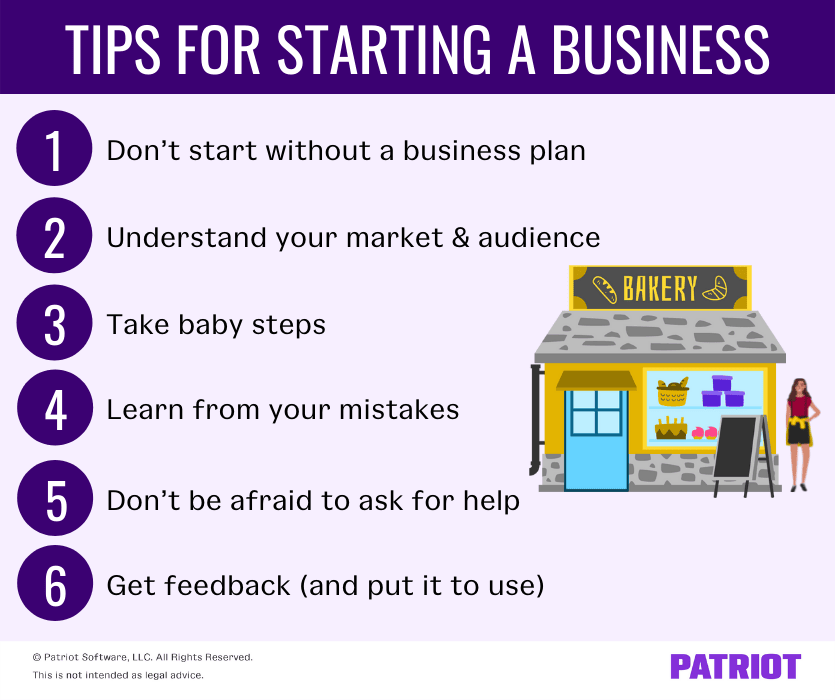Some people believe that the younger you are when starting a business, the more likely you are to see success. Others may sway the other way and believe that the older and wiser you are when starting a business, the better. Regardless of how old you are when you become an entrepreneur, starting a business is exciting and a little scary. So, what is the average age to start a business? And, is there a “golden age” to become an entrepreneur?
Average age to start a business
When asking, What’s the average age of starting a business?, the answer can vary depending on who you ask. Let’s take a look at the statistics, shall we?
Here’s the average age of a business owner, according to a few sources:
- 34 years old: CNBC and Bloomberg
- 35 years old: U.S. Chamber of Commerce
- 42 years old: Wharton
- 45 years old: Harvard Business Review, Northwestern, Entrepreneur, and Inc.
Again, the answer can vary depending on the study you look at. Some may claim 20-something is the best age to become an entrepreneur (just look at Mark Zuckerberg!). While others may swear by waiting until your 50s like Bernie Marcus, co-founder of Home Depot, did.
As you can tell, many claim the ideal age to start a company is anywhere from 34 – 45 years old, with many agreeing that 45 is the median age. However, that doesn’t mean you have to be within that age range to start a successful business. According to the U.S. Chamber of Commerce, 51% of people are aged 55+ when they start their small business.
How old were Steve Jobs, Elon Musk, and others when they started their companies?
Now for comparison, let’s take a look at some successful entrepreneurs’ ages when they started:
- Mark Zuckerberg: 19
- Steve Jobs: 21
- Sara Blakely: 27
- Jack Dorsey: 29
- Jeff Bezos: 30
- Oprah Winfrey: 32
- Elon Musk: 32
- Anne Wojcicki: 33
- Vera Wang: 40
- Sam Walton: 44
- Ray Kroc: 52
Notice a pattern? Not really. Why is that? Because entrepreneurs come in all shapes and sizes. The truth is, business success can come at any age. But, that doesn’t mean that there aren’t factors that can impact the success of an entrepreneur…
Factors that can impact the average age of entrepreneurs
Sure, age is just a number when it comes to entrepreneurship. However, there are some factors that can impact how soon you start a business, such as:
- Industry
- Demand
- Location
- Finances
- Amount of knowledge or expertise
- Mindset and determination
The above factors may play a role in when an entrepreneur gets their start. For example, you may have a great idea at age 19 but not have the funds to actually start it until you’re 30. On the other hand, you may have plenty of knowledge and financial stability by 30, but not come up with a strong business idea until you’re 45.
Now, you don’t have to have all of the above factors going your way to be successful—many entrepreneurs start with nothing but determination. But, having things like funds, expertise, and a strong mindset sure can help you in the long run.
Tips for starting a business at any age
Ready to turn your business idea into a reality (and a success story)? Regardless of your age, here are a few helpful tips for starting a business.

1. Don’t start without a business plan
A strong business plan can help guide your business down the road to success. But a weak or even nonexistent plan? Your startup will likely struggle. So, a word to the wise: Don’t start a business without a business plan.
Not sure where to start? No worries. Here are the sections you need to include in your plan:
- Executive summary
- Company description
- Market analysis
- Organization and management
- Products and services
- Marketing and sales
- Funding request
- Financial projections
The more research and details you include in your plan, the better. Having a detailed plan can only prepare you more along the way.
2. Take baby steps
Becoming an entrepreneur takes time and a whole lot of energy. The last thing you want to do when you first start out is put your hand in too many pots. Instead of diving into too many tasks at once when you start, take things one step at a time.
Taking baby steps can help ensure you avoid common startup mistakes, make good decisions, and steer clear of taking on too much at once. Not to mention, it can make your entrepreneurial journal more enjoyable and less stressful.
3. Understand your market and audience
You can’t start a business without doing some research and having a firm grasp on who your market and audience is. Otherwise, you could end up marketing to the wrong group and missing out on sales.
To find your target market, conduct a market analysis. Your analysis can help you answer questions like:
- Who is your target audience?
- What part of the market does your business exist in?
- Who are your competitors?
- What do your competitors do right and wrong?
Once you have done enough research, you can pinpoint specific demographics and psychographics and come up with a marketing plan.
4. Learn from your mistakes (and other peoples’ mistakes)
When starting out, don’t make the mistake of not learning from your mistakes and other entrepreneurs’ mistakes. Instead, use them as a guide to make smart decisions and grow your business.
Every entrepreneur makes a mistake (or two or three) during their journey. But, you shouldn’t let them stop you from pursuing your business dream. So, learn from your mistakes, come up with a game plan to avoid making the same mistakes in the future, and grow from them.
5. Don’t be afraid to ask for help
It’s no secret that entrepreneurship comes with a ton of responsibilities. And when you’re first starting your business, you may need a helping hand regardless of how old you are.
Don’t be afraid to ask others for help along the way. Otherwise, you may wind up taking on too much at once, which can cause business failure. You can reach out to friends, family, teammates, and experts in the industry for assistance, support, and advice.
6. Get feedback (and put it to use)
Feedback is oh-so-important when starting a business. Why? Because it can tell you a lot about your product or service that you don’t notice yourself.
Ask others, like customers, friends, family, and teammates, for honest feedback. That way, you can pinpoint problem areas and make improvements. Plus, you can find out what you’re doing right and what people like about your business. Gather feedback from:
- Surveys and polls
- Emails
- Phone calls
- Customer reviews
- Social media
Keep collecting feedback at each step of your entrepreneurial journey. Doing so can help you make the right adjustments to ensure your business is successful at every stage.
This article has been updated from its original publication date of January 28, 2022.
This is not intended as legal advice; for more information, please click here.



